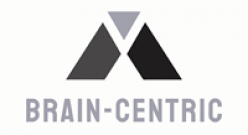Ever forward-facing organizations want nothing to do with an outdated learning system that hasn’t changed since the time of Aristotle. Isn’t it strange that the way we teach hasn’t evolved along with our society?
We are at a bizarre time in the twenty-first century where technology has given us easy access to information, yet we aren’t learning any faster. We are constantly bombarded by information but starved for wisdom.
Why Think About Mindset?
As a business, our most valuable players are adaptive experts, cognitive thinkers, and those with growth mindsets. These are the team members that think outside the box. They bring something new to the table.
They are not satisfied in their Industrial two-dimensional schooling (and neither are you). This schooling is black and white. It is right-wrong up-down, supply-demand, and by the book.
The result in your top team members?
Boredom, frustration, fear, stress, and stagnation.
Organizational leaders, you do not want to box in your best people.
The New Way
In the 1990s, new ideas and applications of new neural teaching methodologies were anticipated by many to contribute to meaningful inroads into learning for K-12. Surprisingly, it is in the world of corporate training that manifested the biggest gains.
Grounded in Pasteur’s Quadrant, the theoretical and practical implications of a multiplicity of breakthrough insights have delivered practices and processes that when used by organizations, dramatically decrease attrition, substantially increase retention, and according to our case studies, make the learner and the trainer enjoy the process more.
One integral step in neuro-aligned teaching methods is a change in mindset.
Change Your Mindset
A growth mindset is underlying belief people have about learning and intelligence. When students believe they can get smarter, they understand that effort makes them stronger. Changing one’s belief from a fixed to growth mindset leads to increased motivation and achievement.
As a leader, you are uniquely positioned to shape the mind of your team.
Researcher Aneeta Rattan and her colleagues asked math teachers to describe what they would say to encourage a student who had failed their first math test of the year. They found that the adults in a fixed mindset would usually say something like, “It’s okay, not everyone is good at math.” Teachers using a growth mindset approach would respond, “Try harder!” and then give the student practical advice so they could do better in the future.
Imagine what might happen if you applied this kind of thinking in your own organization? What if you focus on what your employees understand, instead of reprimanding them based on what they don’t?
Data from the Kahn Academy experiment indicate that all children can earn an A. Some do it immediately, some take a little time, and others take a little more time. But we do not punish them based on the snapshot of a particular day. Many studies have shown that students who entered the classroom as low achievers and were taught by an instructor with a fixed mindset ended up showing little improvement throughout the year. This is referred to as the Pygmalion Effect, and it basically confirms what the teacher believes the child will achieve, as if in a self-fulfilling prophecy.
This work has big implications within an organization.
BcD And You
Brain-centric Design™ (BcD) is the emergent catalyst in this world of task-based learning, application, and output. BcD™ translates neuro- discoveries into practical teaching systems that deliver powerful improvements in the workplace so that all individuals reach their potential. Participants immediately understand how to think about their thinking, regulate a lifetime of mental conditioning, and most importantly, do so effortlessly while sharing this method with others to achieve deep understanding.
Mental models and thinking systems that are unencumbered by regime, time, or bottom line, have liberated workers into a place of creative ignition. With BcD, output increased, sense of self and purpose improved, and above all, people engaged in the content in way that was driven by intrinsic motivation.
Mindset Metrics
BcD results are always significant and often breathtaking. We define paradigmatic shifts on three mental planes at once:
(i) Conceptual (from Behaviorist to Cognitivist)
(ii) Mindset (from Fixed to Growth)
(iii) Expertise (from Routine to Adaptive)
The goal is twofold:
(i) Eliminate labeling and stratification in workplace practices
(ii) Increase individual capacity in the field where neuroscience informs practices & processes.
Brain-centric Design training enables individuals to connect to their
world of four-dimensional expression. Like many new concepts, BcD is
simpler in the rearview mirror.
- A deep and contextual understanding of Neural Plasticity eliminates stratification and negative stereotyping of implicit bias.
- A comprehensive understanding of Adaptive Expertise eliminates labeling and ignites individuals to find their best selves, every time.
- A meaningful application of knowledge about Growth Mindset illuminates every workplace setting, drives competency with intentionality, and delivers engaged and contented employees.
It might be rocket science, but it’s definitely neuroscience.
Growth Mindset enabled by Brain-centric Design™

One thought on “Growth Mindset Training”